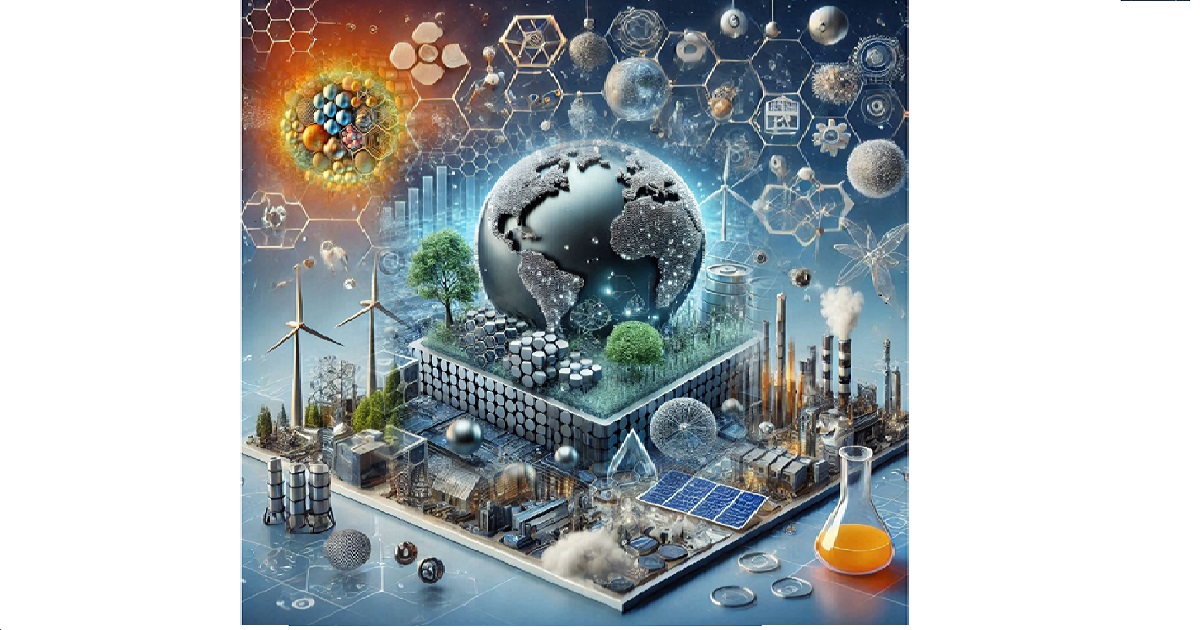- 3.2Impact Factor
- 6.4CiteScore
- 16 daysTime to First Decision
Advances in Catalytic Materials and Processes for the Energy and Environmental Applications in a Carbon-Neutral Society
This special issue belongs to the section “Catalytic Materials“.
Special Issue Information
Dear Colleagues,
The pursuit of sustainable energy and environmental solutions is driving transformative advancements in catalysis and materials science and this Special Issue seeks to focus on recent innovations in catalytic materials, reaction engineering, and integrated processes that enable efficient and selective transformations of carbon feedstocks into sustainable energy carriers, fuels, and chemicals. Contributions are invited on cutting-edge catalyst designs and synthesis strategies, including advanced materials such as MXenes, graphene-based composites, and hybrid systems, as well as mechanistic insights into and the optimization of catalytic processes for carbon capture, conversion, and biofuel production. We also welcome studies on novel reactor engineering and computational approaches to enhancing catalytic efficiency and scalability, alongside environmental catalysis and nanotechnology solutions for wastewater treatment, pollutant remediation, and energy generation from bio-waste. Both experimental and theoretical studies, as well as reviews, exploring interdisciplinary approaches to carbon-neutral energy and chemical systems, are encouraged.
We welcome original research, reviews, mini reviews, and perspective articles on themes including, but not limited to:
- Innovative Catalysts for Energy and Environmental Applications:
- The design, synthesis, characterization, and optimization of heterogeneous, hybrid, and electrocatalysts;
- The development of MXenes, graphene-based composites, and other advanced materials for CO₂ reduction, water splitting, and pollutant degradation.
- Advanced materials for CO₂ sequestration, storage, and transformation into valuable products;
- Functional nanostructures for sustainable energy systems and environmental protection.
- Novel catalytic reactor designs and engineering for sustainable fuel and chemical production;
- Computational modeling and simulation for catalyst optimization and process intensification.
- Biofuel production from bio-waste, syngas, and CO₂ conversion processes;
- Innovations in carbon-neutral and renewable energy technologies.
- Catalysis-driven solutions for wastewater treatment, pollutant remediation, and biocorrosion mitigation;
- Integration of catalytic processes with microbial fuel cells, electromicrobiology, and advanced oxidation processes for environmental sustainability.
Dr. Muhammad Asif Nawaz
Prof. Dr. Waqas Qamar Zaman
Guest Editors
Manuscript Submission Information
Manuscripts should be submitted online at www.mdpi.com by registering and logging in to this website. Once you are registered, click here to go to the submission form. Manuscripts can be submitted until the deadline. All submissions that pass pre-check are peer-reviewed. Accepted papers will be published continuously in the journal (as soon as accepted) and will be listed together on the special issue website. Research articles, review articles as well as short communications are invited. For planned papers, a title and short abstract (about 250 words) can be sent to the Editorial Office for assessment.
Submitted manuscripts should not have been published previously, nor be under consideration for publication elsewhere (except conference proceedings papers). All manuscripts are thoroughly refereed through a single-blind peer-review process. A guide for authors and other relevant information for submission of manuscripts is available on the Instructions for Authors page. Materials is an international peer-reviewed open access semimonthly journal published by MDPI.
Please visit the Instructions for Authors page before submitting a manuscript. The Article Processing Charge (APC) for publication in this open access journal is 2600 CHF (Swiss Francs). Submitted papers should be well formatted and use good English. Authors may use MDPI's English editing service prior to publication or during author revisions.
Keywords
- catalysis
- CO₂ reduction
- sustainable energy
- electrocatalysis
- advanced oxidation processes
- graphene-based composites
- MXenes
- environmental nanotechnology
- microbial fuel cells
- reactor engineering

Benefits of Publishing in a Special Issue
- Ease of navigation: Grouping papers by topic helps scholars navigate broad scope journals more efficiently.
- Greater discoverability: Special Issues support the reach and impact of scientific research. Articles in Special Issues are more discoverable and cited more frequently.
- Expansion of research network: Special Issues facilitate connections among authors, fostering scientific collaborations.
- External promotion: Articles in Special Issues are often promoted through the journal's social media, increasing their visibility.
- e-Book format: Special Issues with more than 10 articles can be published as dedicated e-books, ensuring wide and rapid dissemination.

